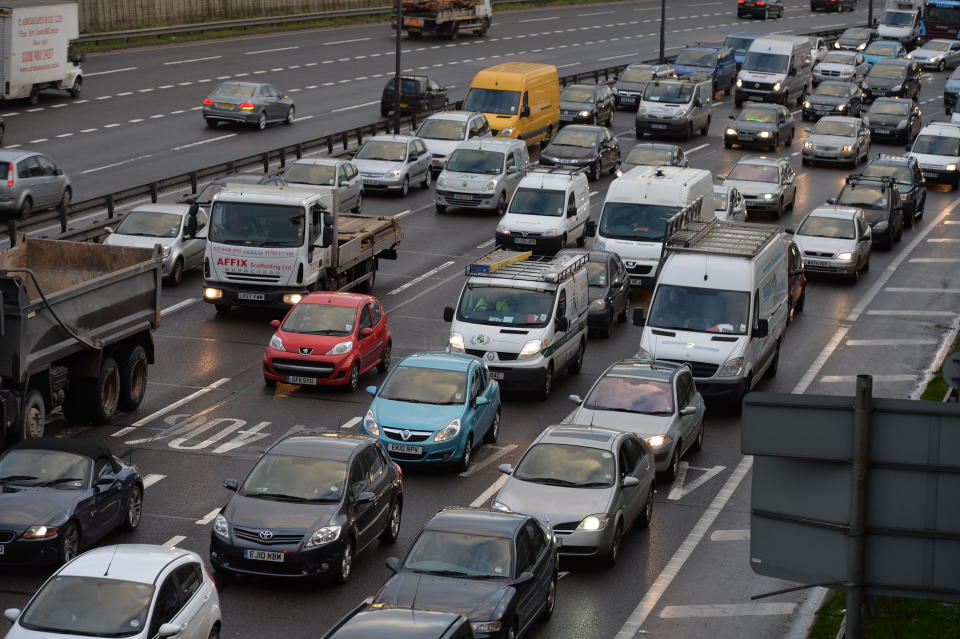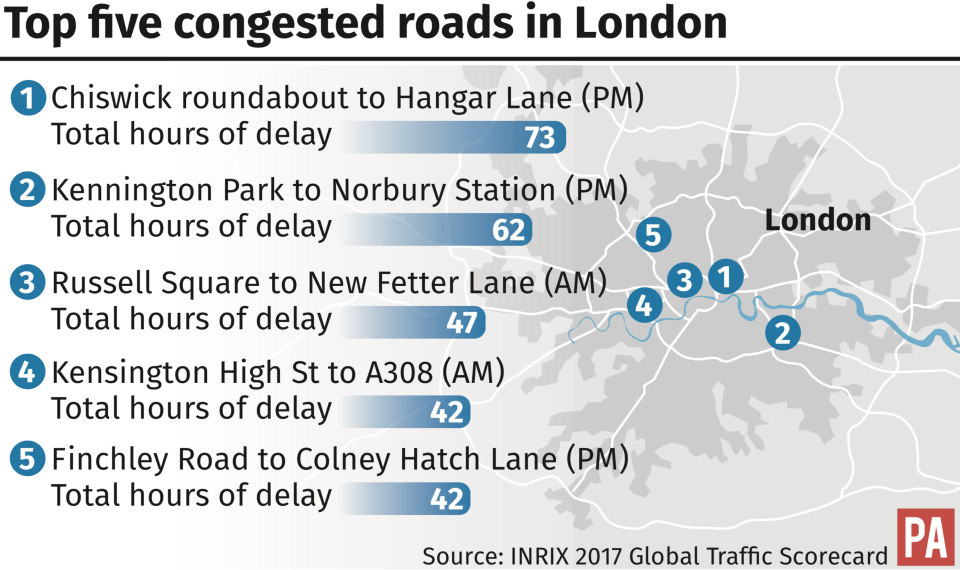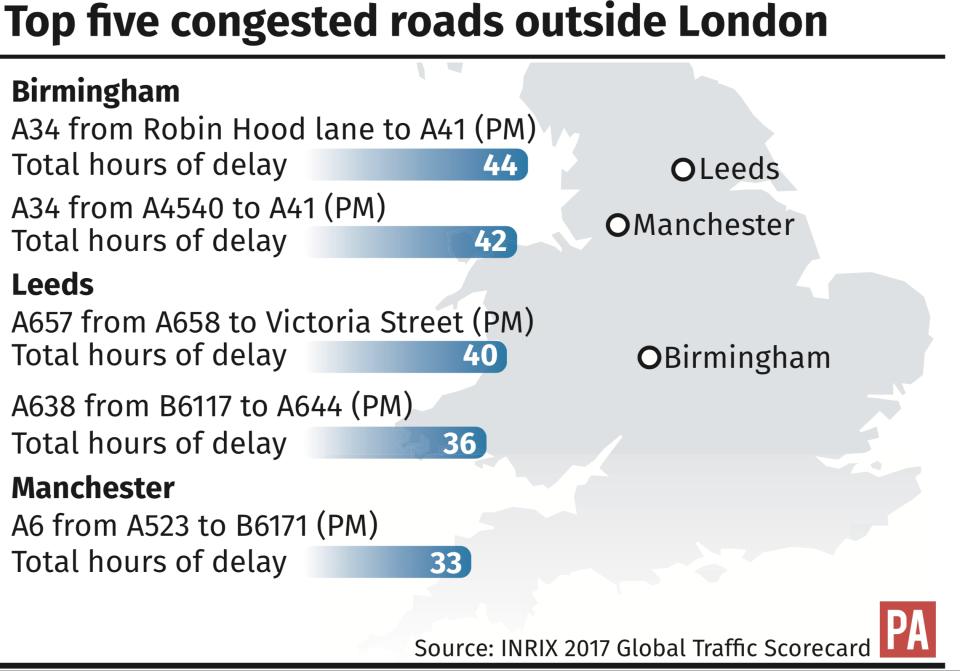UK motorists spend 31 hours a year stuck in traffic - costing them almost £1,200 each

Motorists in the UK spend about 31 hours a year stuck in traffic jams costing them almost £1,200 each in lost productivity, wasted fuel and lost time.
All told, congestion on the roads network costs the nation an estimated £37.7bn as delays hit production schedules, delivery times and working hours.
Britain is the world’s 10th most congested country and London is Europe’s second most gridlocked city after Moscow. On average, delays cost each motorist £1,168.
MORE: TomTom angers customers by scrapping updates for 66 sat-nav models
Manchester, Birmingham, Luton and Edinburgh made up the UK’s top five most jammed cities, according to research by traffic data firm Inrix.

Unsurprisingly, drivers in London suffered the most – despite the introduction of the congestion zone and bus lanes to encourage people to leave their cars at home.
London drivers spent an average of 74 hours stuck in traffic last year during peak hours, costing individuals £2,430. The cost to city as a whole was estimated at £9.5 billion.
MORE: Motorist has car seized by police for not having commuting insurance
During peak hours, the capital’s traffic was travelling at under 5mph 23% of the time, while the A406 between Chiswick roundabout and Hanger Lane was the capital’s most congested road during the evening rush-hour.

RAC spokesman Rod Dennis said: “There is no silver bullet to sorting out congestion. Ring-fenced funding for improving England’s major roads from 2021 should help, but there also needs to be an emphasis placed on providing cheap, practical, reliable alternatives to the car – especially in urban areas.
“In the meantime, urban planners should be looking at how we can maximise vehicle flow – looking at traffic light sequencings, reducing the amount of time roadworks are live on roads and seeing what impact reducing road space for vehicles is having on journey times.
“Employers and individuals can also do their bit by encouraging greater car sharing.”
The scale of the challenge is illustrated by the fact that Inrix research put towns such as Bath, Braintree and Aylesbury in the UK’s most jammed up places.

Los Angeles in California was the world’s most congested city – with drivers wasting an average of 102 hours stuck in traffic during peak times.
MORE: Shake-up could see UK motorists face a 2,475% increase to tax that new green hybrid
Thailand was the world’s most congested country, thanks to a national average of 56 hours.
Motorists in Moscow, meanwhile, had to contend with Europe’s most congested city, spending an average of 91 hours stuck in peak-time traffic last year.
Inrix chief economist Dr Graham Cookson said transport authorities and planners should be examining data analytics and making use of AI to map, predict and shape future traffic flows and systems to better tackle the issues.

 Yahoo Finance
Yahoo Finance 
